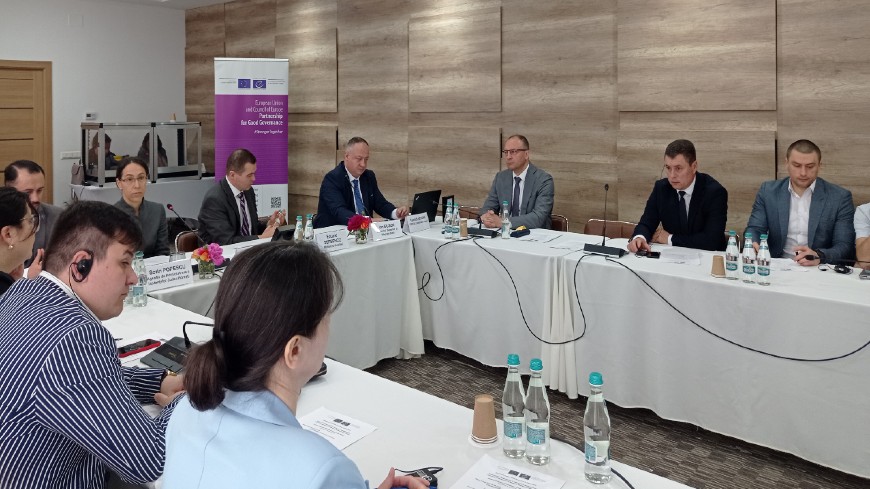The launching of the JUSTAT Automated Information System (AIS) took place on 26 May 2023 in a public event to present this new tool, with the participation of the representatives of the national authorities, partners in charge of developing the tool, and the CEPEJ experts, Rado Brezovar (Slovenia) and Luigi Cipollini (Italy).
JUSTAT has been inspired from the CEPEJ-STAT database related to judicial systems of the Council of Europe member States and developed by a working group with the involvement of representatives of the Moldovan central judicial administration, courts, national consultants, and the Secretariat of the European Commission for the Efficiency of Justice (CEPEJ). The JUSTAT AIS has been created in close collaboration between the CEPEJ and the Agency for Court Administration of the Republic of Moldova.
During the launching event, the concept, main features and functionalities of the new information system were introduced, and the data that can be consulted through its three dashboards, namely statistics, key performance indicators, and other pertinent data used in the evaluation of the performance of national courts. The interoperability of the JUSTAT AIS and the Integrated Case Management System for the data collection and transfer was also highlighted.
The JUSTAT AIS shall help the national authorities to improve the efficiency and the transparency of courts and facilitate the understanding and access to judicial data of the professionals and the public.





